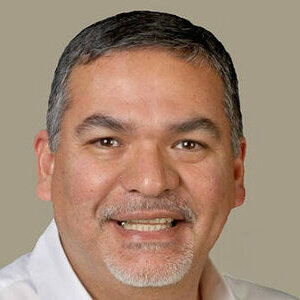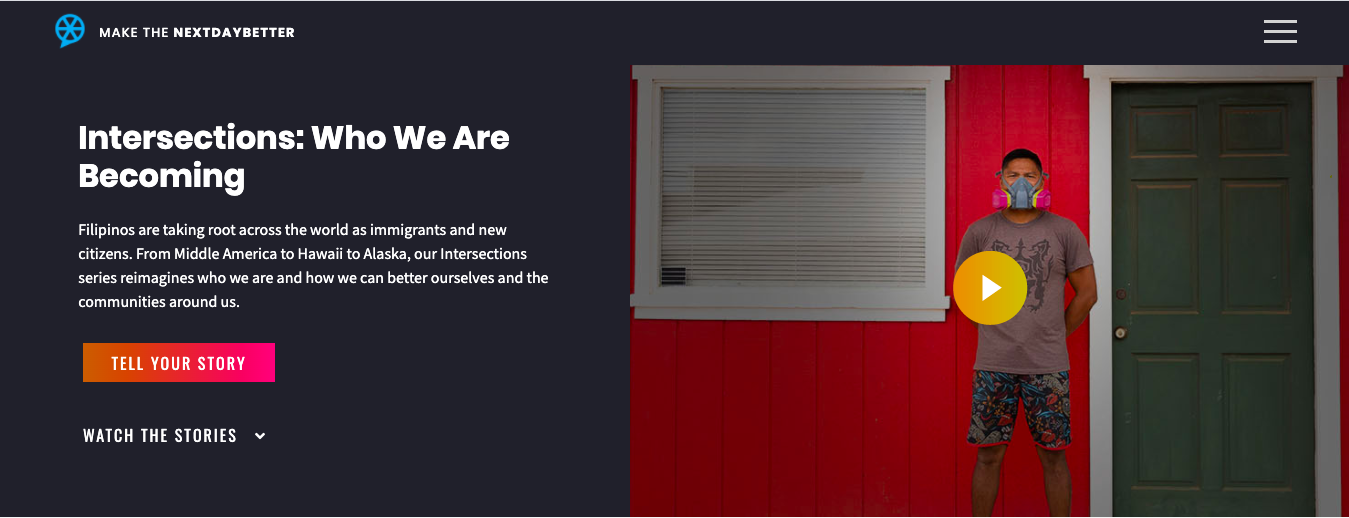The Storytellers
Jorge Fontanez (left) and Ryan Letada
Two New York communications entrepreneurs curate oral histories and personal stories from overlooked communities, “making the invisible visible.”
By Ricardo Sandoval-Palos
Several years ago I participated in an experiment on a small stage in Manhattan: Two determined New York activists had invited a few experienced storytellers to illustrate their personal and professional journeys with words before a live audience. In the room were communications professionals from diverse backgrounds. We were there to show how storytelling could help purge our collective frustration with traditional media’s habit of whitewashing, or mostly just ignoring, our communities.
Afterward, Ryan Letada and Jorge Fontanez revealed to me their quiet motivation for the event: They’d been mulling a financially sustainable way to use storytelling to engage marginalized people, especially from the migrant diaspora and the LGTBQ+ community, where people have been eager to break into the media mainstream.
That night in New York they were testing something of a “TED Talks for the rest of us.” What’s evolved since is the portal, NextDayBetter, at once a publishing platform for stories from communities of color and an LGBTQ+ audience, and a way to chronicle the lives of people critical to society’s diverse fabric.
The site was Letada’s idea. His early notion was that he was probably not the only Filipino and the only immigrant -- he was born in Kuwait and raised in the Bronx -- who had an interesting story to tell. But he saw limited options for communicators from diverse backgrounds. That was the kind of challenge Letada lives for.
He describes himself as a “serial entrepreneur” -- he’s been a Fulbright fellow, a Google Next Gen Leader, and a Posse Foundation Scholar. And through all that he’s come to see a disturbing sameness in mass communications -- a reliance on stories that tend to homogenize the tiles that form the mosaic of American stories.
Letada broke ground for NextDayBetter and became its CEO. Jorge Fontanez took on the role of partnerships coordinator -- a good fit for a veteran of the mainstream marketing business. Fontanez is Puerto Rican. He was a First Movers Fellow in the Aspen Institute’s Business and Society Program. He teaches marketing in Bard College’s Sustainability MBA program.
An early, major endeavor was a collaboration with the American Association of Retired People called "A #LivingHistory of the LGBT Movement" - a video series honoring past, present, and future heroes of the LGBT movement.
“We know that the history of the LGBT movement is still being written,” the two wrote when they launched the site. ”By understanding our history, we can create a better future for everyone, especially for our aging LGBT older adults.”
NDB, as the pair short-hands the site, is now diving deep into the U.S. Census. They’re working with the Census Counts campaign, a coalition of activist groups and businesses that make up the Leadership Conference Education Fund. NDB helped develop a series of videos, quote graphics, and infographics featuring storytellers and advocates exploring the importance of census participation.
The collection of digital stories is made up of ready-made segments that can be downloaded and used by local activists for organizing and engagement campaigns.
The project delivers stories like that of Elizabeth Graham, a transgender woman of color on the autism spectrum, who powerfully describes the barriers her communities face in seeking health care and disability justice, and how full engagement in the 2020 Census can help.
Letada and Fontanez took time out from a busy Pride month calendar to talk with me about the “why” behind their activism and NextDayBetter. (We edited their answers here for clarity and space.)
NextDayBetter features platforms for storytellers from diverse communities.
palabra.: Describe the goals you've set for Next Day Better?
Jorge Fontanez: At the heart of standout storytelling is the power it gives to the storyteller. The mission of the organization and its founder's vision has stayed true: Increasing representation of marginalized voices in media. That’s the true north goal. We call it “making the invisible visible.”
Ryan has chosen to bring light to a world of diaspora storytellers that must balance the duality of having a strong connection to a place somewhere other than where they reside. This migrant or immigrant experience is unique, and too often in the lives of migrants, their experiences are not centered, denying them the dignity to use their voice to advocate for themselves.
Ryan Letada: NextDayBetter exists to rebrand migration as a benefit to humanity. We tell untold stories that humanize the migrant experience and call on diaspora communities to take action.
Through NextDayBetter Studios, our agency arm, we partner and empower mission-aligned organizations and brands to use their influential platforms to tell stories that create change. Now, more than ever, we need to tell stories that make the invisible visible in order to build empathy around our shared humanity in an increasingly migrant and digital world.
Invisibility comes in all forms: lack of acknowledgment as human beings, poor labor conditions, lack of access to affordable healthcare, police brutality, and more.
My parents left my siblings and me in the Philippines for several years to find a better life for us elsewhere around the world. During that search, my parents became refugees during the Gulf War in Kuwait. In the Bronx, I saw first-hand how hard they worked and sacrificed to give us better lives. It pains me to see how immigrants and people of color, like my parents, are poorly treated as if they were invisible.
palabra.: Is there something that's happened in the NDB experience, so far, that has surprised you, or led you in an unexpected direction?
Fontanez: In the process of producing our LGBTQ history story in remembrance of the 50th Anniversary of the Stonewall Uprising, we knew it would be hard to find people of color in the movement. We know they were there. We have proof, from photos and personal accounts. But more often than not, we do not know their names. So we hold up with great regard for the lives of Sylvia Rivera and Marsha P. Johnson.
At the same time, we might lose sight of the fact that there were likely dozens, hundreds or even thousands of people like Sylvia and Marsha that fueled the Gay Liberation Front in important ways. Unfortunately, we may never know their names. And we know now that the HIV/AIDS pandemic in the '80s led to the loss of a generation leaving deep wounds in the fight for LGBT equality.
This realization was a shock to my system. Although I experienced personal trauma in the research process, I found strength in our ability to reclaim a part of our history to inspire a new generation of activists.
palabra.: Why do you believe NextDayBetter is needed? Was there really a void you felt compelled to fill? What was the spark that launched the idea?
Letada: Three out of four times, I hear this response when I invite people to share their stories on NextDayBetter: ”why me? I don't have a story to tell.”
The response is indicative of how people see themselves and their self-worth. I am proud to say that we tell stories anchored in empathy and respect. For communities of color and immigrants around the world, sharing our stories can be healing, especially in a world filled with pain and trauma.
Fontanez: I joined NDB at a time when I was on a personal journey to deepen my relationship to being a first-generation Puerto Rican living on the mainland. As a diaspora, Ryan and I share common migration traits -- a shared colonial history under Spanish and then U.S. rule that spans over 400 years. Our collaboration has been an experiment to find commonalities in our histories in order to draw our own connections, rather than focus on our differences. The need for platforms like NextDayBetter feels urgent at a time when public support for racial justice is at an all-time high. I believe part of the process for achieving equity begins with understanding violent and traumatic history in our country.
palabra.: What have you learned about the human need for storytelling?
Fontanez: There are too many instances in human history where individuals and the existence of entire peoples has been erased. Whether we are looking at the genocide of Indigenous populations to the enslavement of Africans who are nameless in census records, much of history for people of color is whitewashed.
This is akin to psychological genocide for which many people today, including Puerto Ricans like me, are just beginning to reconnect with our legacy and a rich cultural history that was stolen from us.
Letada: Here's a not-so-surprising revelation: brands can be pivotal voices and platforms for influencing and creating change. In the fight for equality, visibility and social justice, we can't dismiss corporations. They are influential institutions. At NextDayBetter we've learned to partner with mission-aligned brands to leverage their influence and far-reaching platforms to advocate for LGBT and immigrant rights, census participation and civic engagement, affordable healthcare, and more.
In our fights against COVID19, racism, and social injustice, storytellers can speak truth to corporations. They can lead discourse around diversity and inclusion, and influence meaningful action towards a more equitable world. We are continually exploring how we can build better partnership models between people, civic organizations, and private institutions so we can then sustain movements for Blacks lives, LGBT equality, and immigrant rights.
Ricardo Sandoval-Palos is managing editor of palabra.




